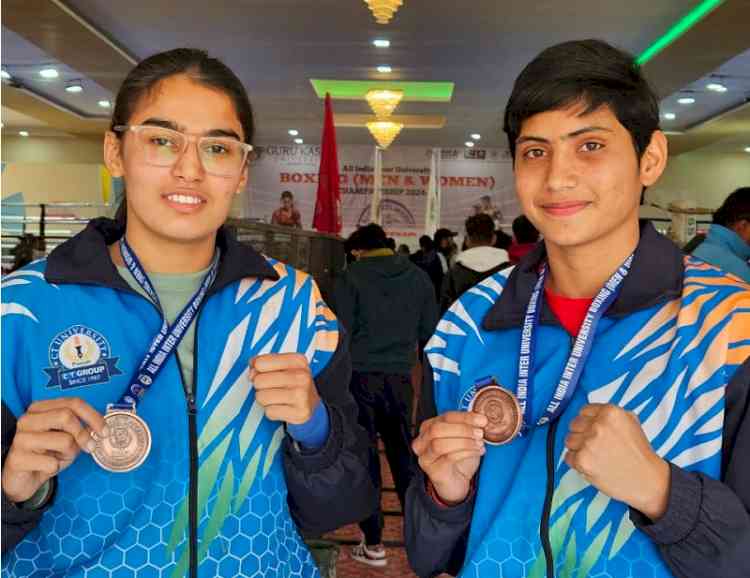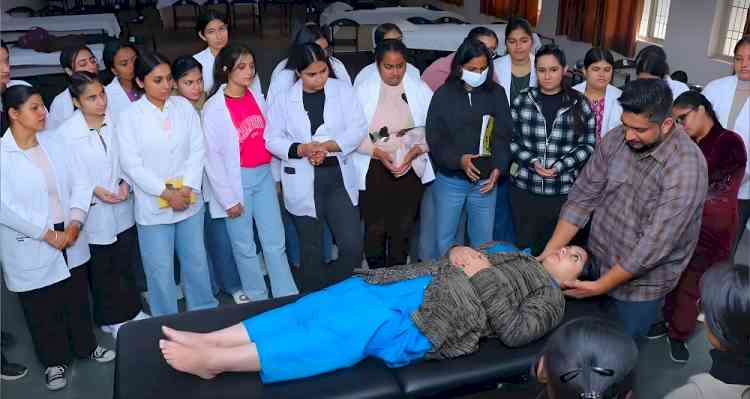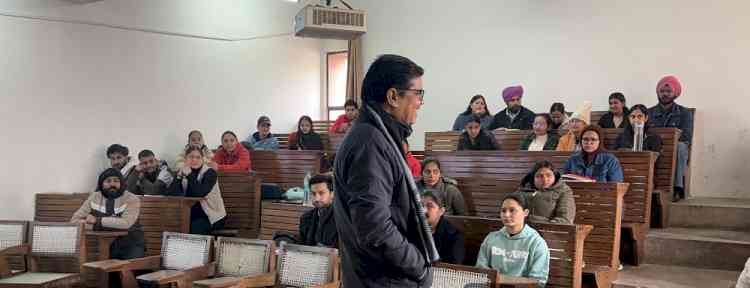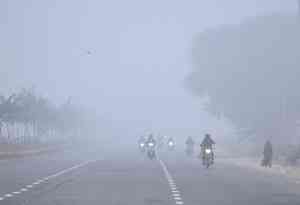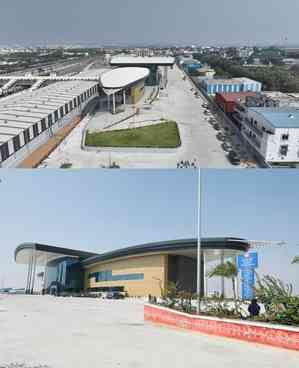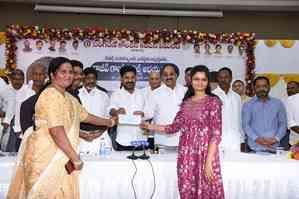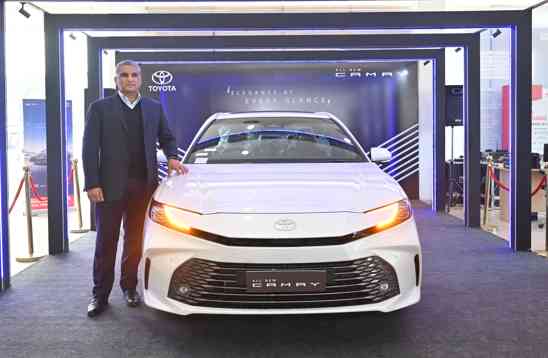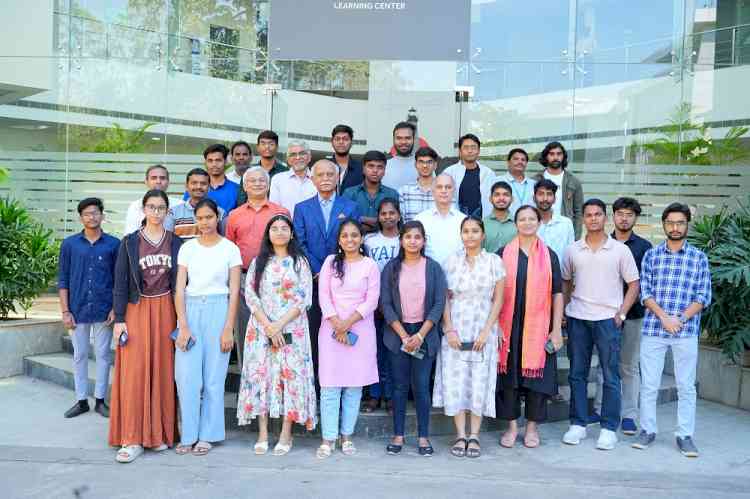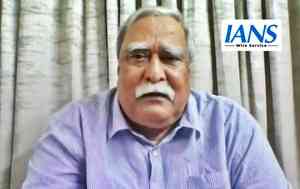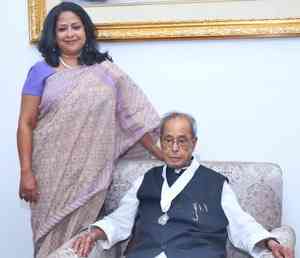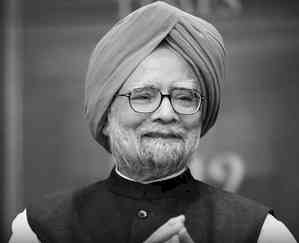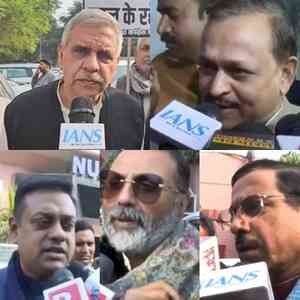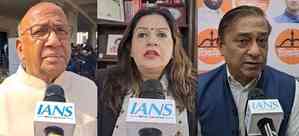Science Journalism: A Tool to Fight against Societal Issues
Pushpa Gujral Science City organized a workshop on Science Journalism through Print, Electronic, and Social Media, aimed at enhancing the skills of budding journalists in science communication. More than 100 participants including young journalists, students, and teachers of Journalism & Mass Communication from various colleges across Punjab participated in the event. The workshop provided a valuable platform for the participants to develop their skills and gain insights into the evolving field of science journalism.
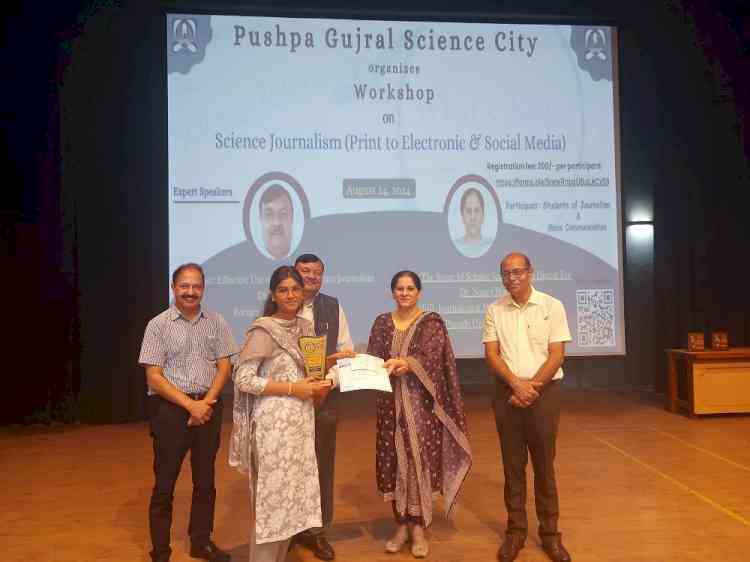
Kapurthala, August 24, 2024: Pushpa Gujral Science City organized a workshop on Science Journalism through Print, Electronic, and Social Media, aimed at enhancing the skills of budding journalists in science communication. More than 100 participants including young journalists, students, and teachers of Journalism & Mass Communication from various colleges across Punjab participated in the event. The workshop provided a valuable platform for the participants to develop their skills and gain insights into the evolving field of science journalism.
Dr. Rajesh Grover, Director, PGSC, in his introductory remarks, underscored the crucial role that skilled science journalists play in making complex scientific discoveries understandable, thereby nurturing a well-informed community. He highlighted the challenges faced in the field, particularly the need for greater scientific literacy among journalists, improved access to scientific data and experts, and more thorough coverage of a broad range of scientific topics, not just the latest breakthroughs. Dr. Grover emphasized the importance of fact-checking to enhance the credibility of the journalism profession and discussed strategies for making science stories both engaging and accessible. He also stressed the necessity of professional training to bridge the gap between scientists and the public.
Dr. Manoj Patairiya, Former Head of NCSTC, DST New Delhi, was the keynote speaker on this occasion and delivered a special lecture on the effective use of media in science journalism. He emphasized the vital role of science journalism in making scientific knowledge accessible to ordinary citizens, empowering them to combat pressing societal challenges like hunger, disease, and superstitions. Dr. Patairiya, noted that although science journalism in India has seen significant growth in recent years, it still has a long way to go to reach its full potential.
Dr. Nancy Walia, Head of the Department of Mass Communication & Journalism, delivered an insightful presentation on "The Scope of Science Journalism in the Digital Era." She emphasized how digital media has revolutionized information sharing by breaking down barriers and providing equitable access to knowledge. Dr. Walia highlighted that digital platforms have significantly alleviated the challenge of communicating scientific concepts to a broad audience, enabling more precise and engaging content delivery.
A Radio Feature competition on the theme "India's Achievements in Space" was recently organized, highlighting the remarkable strides the nation has made in space exploration. In this competition, Sakshi from Hans Raj Mahavidyalaya emerged as the winner, securing the first prize, Tanisha from Guru Nanak Dev University, Amritsar, claimed the second prize and The third prize was awarded to Simran from Doaba College, Jalandhar.


 City Air News
City Air News 
